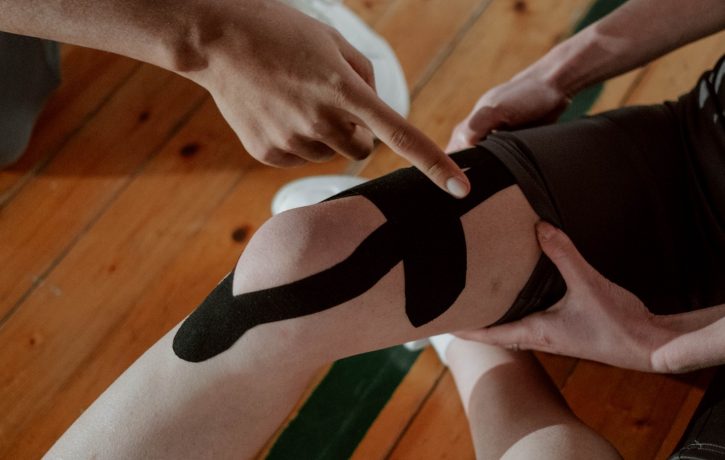Patellofemoral Pain

Pain at the front of the knee, below the knee cap, is usually the response to irritation of the knee cap where it articulates with the thigh bone (the patellofemoral joint).
Patellofemoral pain is actually a relatively common musculoskeletal (MSK) condition. It affects around 23% of the general population and accounts for approximately 17% of all knee pain presentations to general practice.
People with patellofemoral pain presenting to MSK clinicians are of varying ages and activity levels, and report pain at the front of the knee, aggravated by activities that load the patellofemoral joint (ie, stairs, running, squatting, etc) but can also feel worse after periods of prolonged sitting when the knee is maintained in a static position.
Things that can aggravate knee pain could be:
- Starting a new activity
- Increase in the intensity and/or frequency of an existing activity
- Following a period of reduced activity that leads to a weakening of the muscles
- Muscle tightness or weakness around your hip and knee
- Unsupportive footwear such as high heels or very flat shoes
- Having a job that requires frequent, prolonged kneeling
- Being overweight
It is so important that patients continue with as much of their normal activities as possible but be mindful of pain management strategies when it comes to managing the volume of loading in the knee.
The latest research into PFPS has found that:
- Exercise is recommended to reduce pain in the short, medium, and long term
- Exercise improves function in the medium and short term
- Combining hip and knee exercises (e.g. squats) is recommended for all patients
Patellar taping to improve the movement of the patella (knee cap) may be used by your MSK therapist to help reduce pain while you exercise/ move especially in the early stages.
This article was written by Matthew Oliver M.Ost DO ND. Osteopath.
- How Pushing Too Hard Can Affect Your Health - 23rd April 2025
- Finding Hope and Comfort Through Pain - 21st March 2025
- Non-Pharmacological Solutions for Managing Pain in Parkinson’s - 19th February 2025
